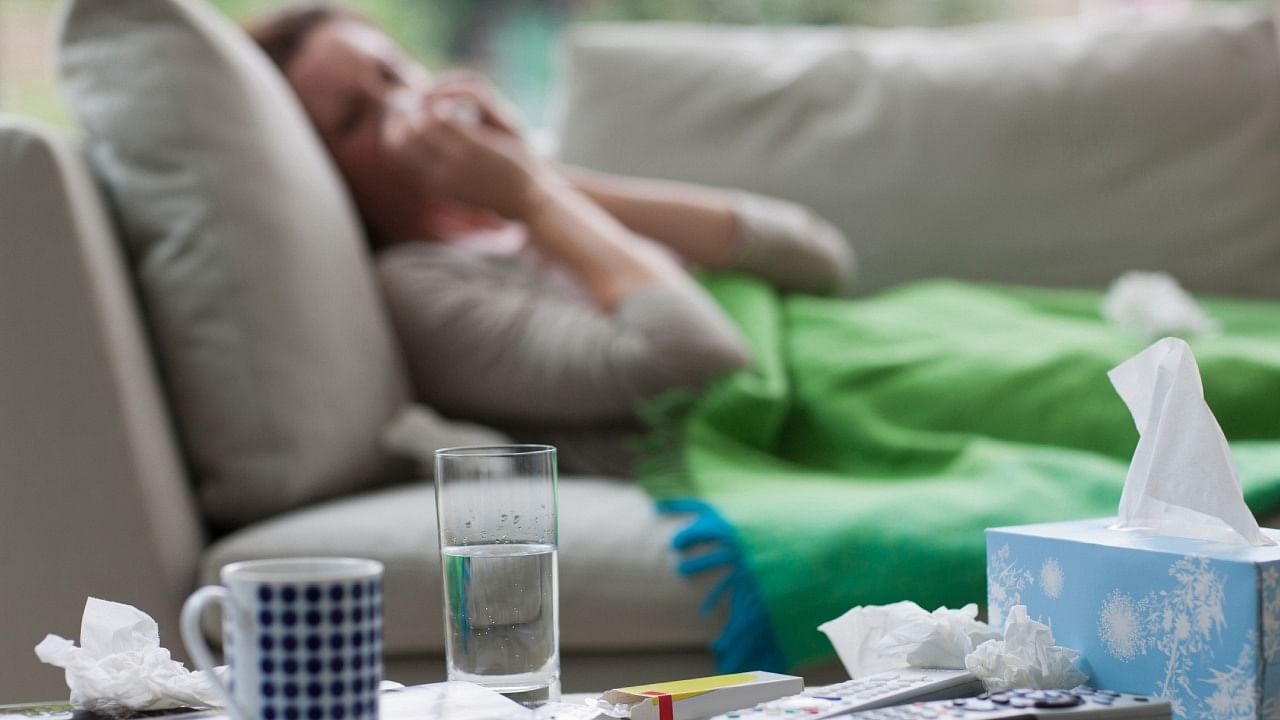
A bad bout of influenza seems to be going around India, with doctors in several cities reporting a rise in long-lasting flu cases with worse-than-usual symptoms.
While North India usually sees a spike in flu cases around February and March, this time, an increase in cases is being reported from various pockets of the country.
In Bengaluru, DH reported that an increase in upper respiratory tract infections, courtesy of influenza, had been observed in hospitals across the city.
Similarly, in Delhi, news agency IANS reported a worse-than-usual spike in flu cases, with some even requiring hopsitalisation and ICU admission.
"Viral fever, cold and cough, and severe lung allergies like bronchitis are being reported majorly in patients visiting the hospital," Sushila Kataria, Senior Director, Internal Medicine, Medanta, was quoted as saying by IANS.
In Bengal too, there has been a spike in flu cases and associated cases of upper respiratory tract infections, and the state on Wednesday reported the deaths of seven children due to respiratory infections.
So what's driving this spike?
According to the ICMR, this increase in flu and upper respiratory tract infection cases are being driven by the H3N2 variant of the influenza virus that has been found to be in wide circulation for the past two-three months.
This spike, doctors believe, is the result of the combination of a number of factors, including the changing weather, bad air quality and pollution, and the increasingly growing intermingling of people after two years of following Covid protocols.
"This year we are seeing a lot of flu cases. Symptoms are slightly different and mroe severe than what were seen in previous years," Sandeep Budhiraja, group medical director, Max Healthcare, was quoted as saying in a report by ET.
Meanwhile, Harshal R Salve, Professor at the Centre for Community Medicine, AIIMS, said the increase in the transmission of the influenza virus was due to abrupt "climatic conditions currently prevalent".
What's to be done?
While an increase in flu cases is to be expected around this time of the year, doctors have suggested getting flu vaccinations as a precaution, especially for vulnerable groups such as the elderly and children.
"Patients having chronic ailments like asthma have to be extra cautious during such weather transition as it can trigger severe respiratory issues and asthma attacks. During this time, even a minor respiratory problem must be reported to a pulmonologist or a physician to reduce the risk of escalating the problem," S K Chhabra, Head of Department, Pulmonary, Sleep and Critical Care Medicine at Primus told IANS.
(with agency inputs)